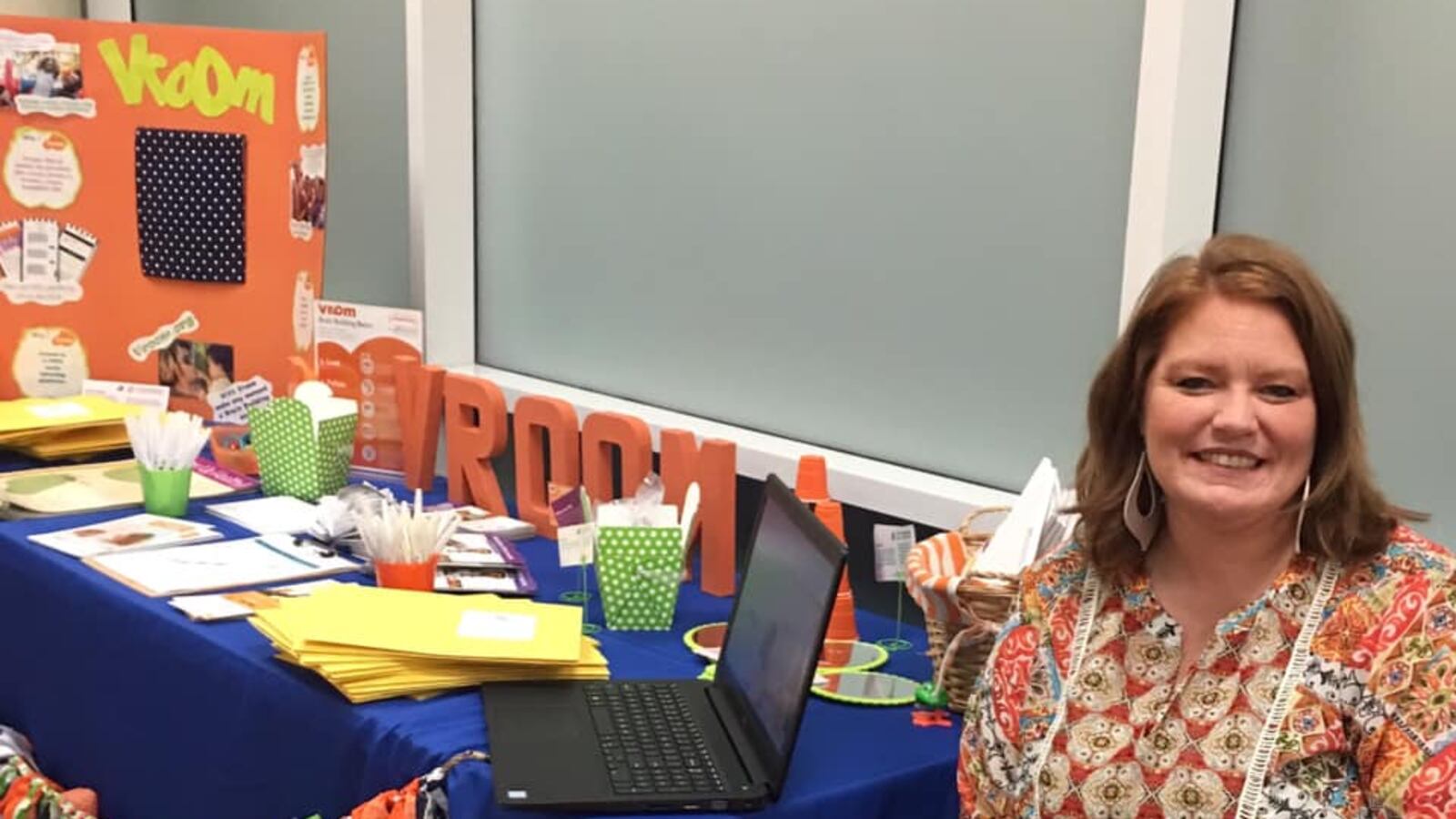Like many parents, when the Covid pandemic began, Heather Martin was working from home and trying to create activities for her two daughters — while doing her job at the same time. She remembers her inbox filling up with online resources and curriculum during the first weeks.
“At first I thought, ‘This is amazing,’ Martin recalls. “And then about two weeks in, the mom guilt hit. I thought, there’s no way I can create these lessons and activities and work at the same time.”
Martin says the experience made her grateful to work with programs like Vroom, which don’t take extra time or money to implement. “With Vroom, parents don’t have to do anything extra. Instead, it’s about transforming what they’re already doing into a moment to learn.”
Martin is the statewide Vroom coordinator with the Child Health and Development Project: Mississippi Thrive. The joint program, from Mississippi State University’s Social Science Research Center and the University of Mississippi Medical Center Children’s of Mississippi, supports families, healthcare providers, and early childhood professionals in early learning to foster positive caregiver and child interactions, enhance attention to developmental milestones, and strengthen children’s brain architecture. She works with a variety of organizations and programs supporting children and families, including Vroom — a global program of the Bezos Family Foundation that offers free, science-based tips for children from birth to age 5. Parents can access the tips in an app, through the website, and through text messages as they go about their day. She’s also created new resources, including a book that uses Vroom tips to help families cope with the reality of the pandemic in everyday life.
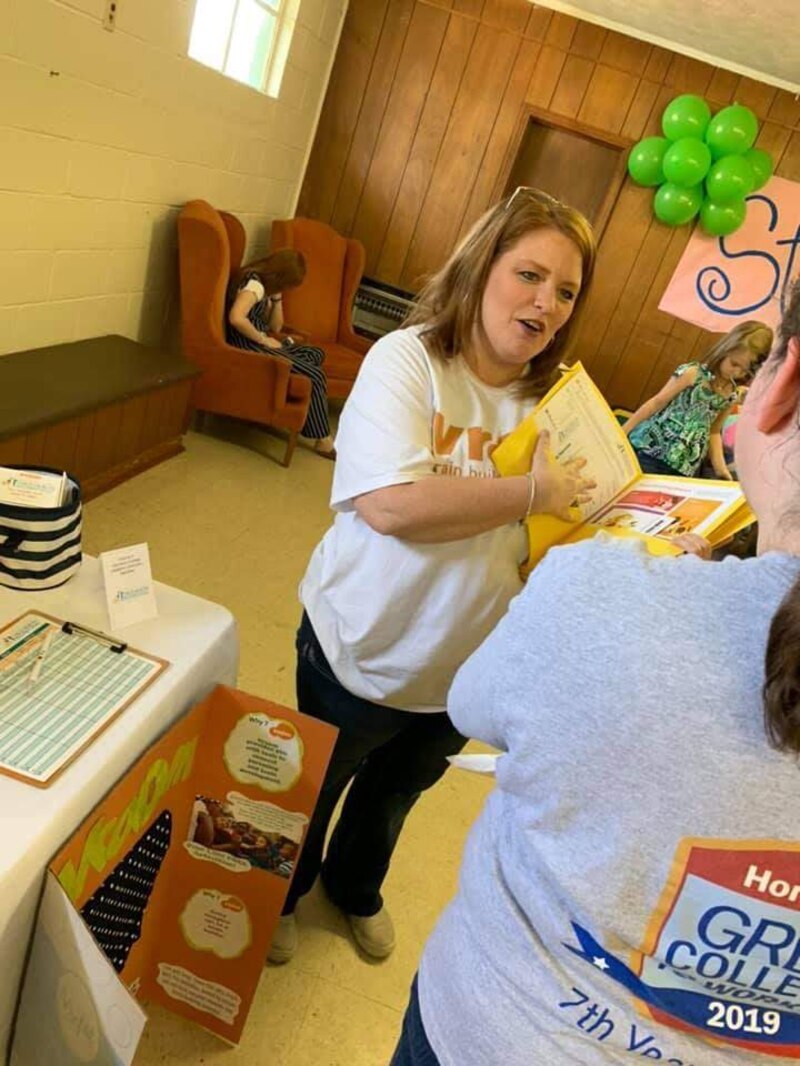
One Mississippi, two Mississippi, three Mississippi
In reflecting on her statewide efforts, Martin sees that Mississippi residents are connected by being part of a welcoming community.
“There’s just nothing that can beat our hospitality.” She adds that as a “high need, low-resource state,” Mississippi is also facing some specific obstacles, starting with its geography, which limits access to sharing resources.
The state is rural, and its regions are unique.
“People laugh sometimes and say there are multiple Mississippis,” Martin says. “Coastal Mississippi, the Pines, the Capital Area/River Region, and the Delta.” Martin explains that each region has its own strengths, dynamics, and challenges, making partnerships between organizations vital.
“Many of our challenges are connected to the ruralness of our state,” Martin continues. “There is no standing resource for early childhood in the community where I live. There are a lot of people, especially in the past few years, who are hurting, who have lost jobs, who are losing their homes. Our childcare centers are struggling. It is incredible to be able to provide a free resource that can give hope.”
To connect with parents across the state, Mississippi Thrive works with the Mississippi Department of Education and the Mississippi Department of Health, as well as several others to implement statewide Vroom trainings and outreach. Now, the Vroom program is included in the training of each childcare director who secures licensure for their center and a part of regular onboarding for home visitors through Healthy Families Mississippi as well.
Parents already have what it takes
Research shows that a two-generational approach to learning supports parents and caregivers in being their child’s first teacher.
“What drove me to share Vroom was our state’s children and also our families and the parents who would come to me as a former educator and say, ‘I just don’t know how to help my children.’” Martin says. “I value being able to hand them something as based in research as Vroom and say, ‘You already have what it takes. You already have what you need. It’s all right here.’”
Martin notes that reinforcing messaging from individuals rooted in a child’s community can encourage parents to take the driver’s seat in boosting their child’s brain.
“If you hear about it from your pre-K teacher, or if you hear about it from your childcare director, it’s that personal approach that makes the biggest difference,” Martin says.
Martin says there is a shift toward parents proudly taking on the role of their child’s first teacher, but that there are some misconceptions that learning has to take extra time, space, or supplies. “When we were growing up, parents would say, ‘when they get to school, they’ll learn this and that.’ It was the culture we had back then,” she says. “But I think the biggest thing is parents don’t realize how easy it can be.”
Martin recalls a quote from the Yale Child Study Center’s Dr. James Comer that has stayed with her for more than 15 years: “There is no significant learning without a significant relationship.”
“That quote means so much to me,” Martin says. “I explain to parents the significance of the relationship they have with their children. Because of that relationship, they have what it takes.”
Martin spreads the same message to educators weary from navigating teaching our youngest learners during the pandemic.
“When I meet with educators, I try to remind them what a gift they have getting to be that constant in the children’s lives … that they get to be that positive support. That makes a world of difference in our communities, our state, and our nation.”
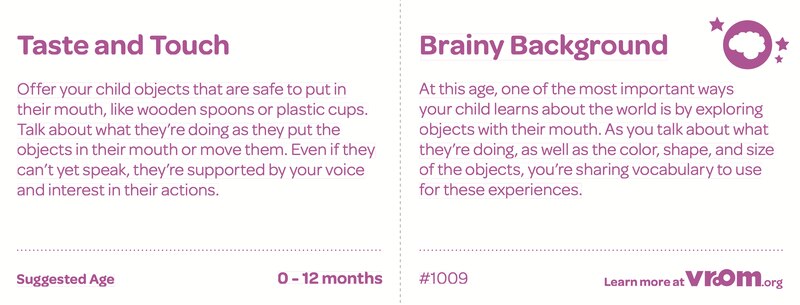
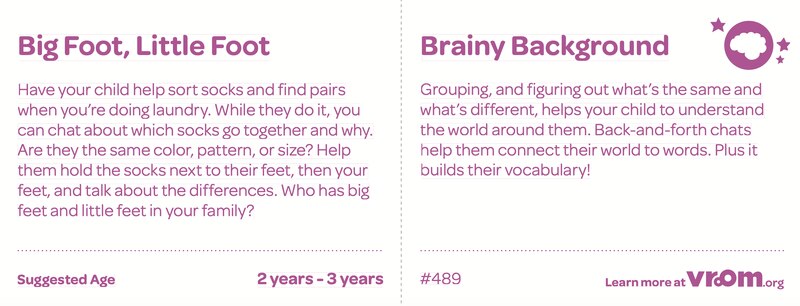
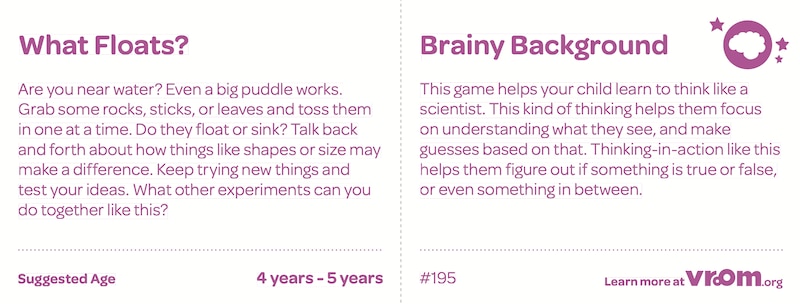
To learn more about Vroom’s brain-building tips for everyday moments, visit Vroom.org
Chalkbeat’s editorial staff had no role in writing or preparing this paid content. Learn about our sponsored content policy.


